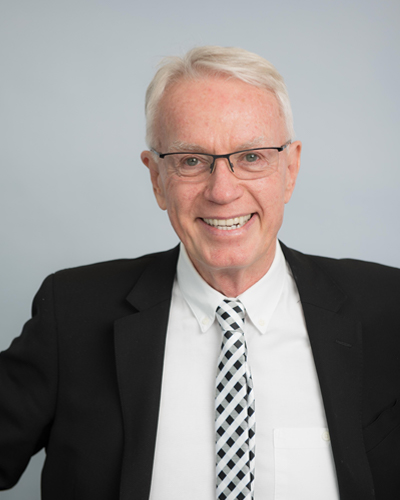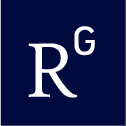Research Interests
Curriculum theory
Biography
Born in Huntington, West Virginia in 1947, William Pinar took his B.S. in Education at The Ohio State University, graduating in 1969. He taught English at the Paul D. Schreiber High School in Port Washington, Long Island, New York from 1969-1971, returning to Ohio State to finish his M.A. in 1970 and the Ph.D. in 1972. He taught at the University of Rochester from 1972 until 1985, when he moved to Louisiana State University (LSU), where he taught until 2005, when he accepted a Canada Research Chair at the University of British Columbia in Vancouver, Canada. After two terms as the Canada Research Chair in curriculum studies, in 2019 Pinar was named the Tetsuo Aoki Professor in curriculum studies.
Pinar has also served as the St. Bernard Parish Alumni Endowed Professor at LSU, the Frank Talbott Professor at the University of Virginia, and the A. Lindsay O’Connor Professor of American Institutions at Colgate University. He has lectured widely, including at Harvard University, McGill University, the University of Wisconsin-Madison as well as the Universities of Chicago, Helsinski, Oslo, Tokyo, and Vienna. The former President of the International Association for the Advancement of Curriculum Studies and the founder of its U.S. affiliate, the American Association for the Advancement of Curriculum Studies, in 2000 Pinar received the LSU Distinguished Faculty Award and a Lifetime Achievement Award from the American Educational Research Association; in 2004 he received an American Educational Association Outstanding Book Award for What is Curriculum Theory?, the third edition of which was published in 2019 by Routledge.
Intellectual biography
Faculties of education often emphasize research on teaching and learning, devising “best practices” of “effective” teaching in order to “facilitate” student learning, often assessed by standardized tests. I am interested in each of these but – as a curriculum theorist – I am less interested in how teachers teach than in what they teach, what students learn (and what they don’t), the impact of standardized assessment on teaching and learning. “What knowledge is of most worth?”: that’s the key curriculum question.
These days that question is often answered in exclusively economic terms – what can students study to ensure a good job upon graduation? – but it is also a political question, evident for example in certain U.S. school districts’ efforts to block the teaching of evolution, or skew the study of slavery. As those controversies make clear, the curriculum question is also an ethical question: what should students study to encourage them to become caring cosmopolitan citizens of their communities and countries and, as climate change requires, of the planet?
The great Canadian educator George Grant underlined the spiritual character of curriculum, insisting we ask why we are alive as well as how should we live, the two questions for him intertwined. For Grant, economics is a subset of ethics. Relegating curriculum to a means – to a good job or even to improve society – devalues it. For him study is an end in itself: a spiritual as well as academic practice.
George Grant was concerned about our relationship to technology, worried we would come to worship it, mesmerized by its many benefits, understating its many dangers, among them pollution, surveillance, the mass casualties of increasingly technological warfare. He predicted technology would produce homogenous societies worldwide, what we now understand as globalization (and the various often violent reactions to it). In that regard, the future of Quebec concerned Grant, but the future of Aboriginal peoples is also affirmed in his commitment to preserve what he termed particularity. Grant was quite critical of the United States, a country (he thought) that would sacrifice anything in the way of profits, now evident in efforts by computer companies to force secondary schools to replace the study of foreign languages with courses in coding.
My book on Grant follows others, each providing specific answers to the curriculum question: what knowledge is of most worth? In a book on racial politics and violence in America I juxtaposed lynching and interracial prison rape to show that racial politics and violence were – are – often expressed through the prism of “gender.” My decades-long interest in gender (organized by what gets called queer theory) has acknowledged LBGTQ2 issues, and not only as a series of precious particularities (as Grant might say) but also in play in apparently non-gendered domains, like curriculum reform. In America’s first national curriculum reform – undertaken by the Kennedy Administration in the early 1960s – gender animated affirmations of academic “rigour,” as the Kennedys’ embrace of sport – specifically American-style football – enacted (as John and Robert Kennedy saw it) the masculine toughness needed to fight the Cold War.
Finally, I have devoted years of study to curriculum studies itself, as a field, explicating its intellectual histories and present circumstances, especially in the U.S. but also in Brazil, China, India, Mexico and South Africa. (There is a book on each.) Now I am undertaking a study of curriculum studies in Canada, interested in showing how the field here has responded to the various challenges posed to it, prominent among them today truth and reconciliation. Throughout each of these projects, the curriculum question reverberates: what knowledge is of most worth?
Selected Publications
Books
2024. Curriculum Studies in Canada: Present Preoccupations. (Co-edited with Anne M. Phelan.) Toronto: University of Toronto Press.
2023. A Praxis of Presence in Curriculum Theory: Advancing Currere against Cultural Crises in Education. London: Routledge.
2022. World Yearbook of Education 2022: Education, Schooling and the Global Universalization of Nationalism. (Co-edited with Daniel Tröhler and Nelli Piattoeva) London: Routledge.
2020. Reconceptualizing Teacher Education Worldwide: A Canadian Contribution to a Global Challenge. (Co-edited with Anne Phelan, Nicholas Ng-A-Fook, and Ruth Kane) Ottawa: University of Ottawa Press.
2019. What Is Curriculum Theory? (3rd edition) New York: Routledge.
2019. Moving Images of Eternity: George Grant’s Critique of Time, Teaching, and Technology. Ottawa: University of Ottawa Press.
2015. Autobiography and Teacher Development in China: Subjectivity and Culture in Curriculum Reform. (Co-edited with Zhang Hua) New York: Palgrave Macmillan.
2015. Toward a Poor Curriculum. (3rd edition. Co-authored with Madeleine R. Grumet). Kingston, NY: Educator’s International Press.
2015. Educational Experience as Lived: Knowledge, History, Alterity. New York: Routledge.
2015. Ed. Curriculum Studies in India. Intellectual Histories, Present Circumstances. New York: Palgrave Macmillan.
2014. Ed. Curriculum Studies in China: Intellectual Histories, Present Circumstances. New York: Palgrave Macmillan.
2014. Ed. International Handbook of Curriculum Research. 2nd edition. New York: Routledge.
2013. Curriculum Studies in the United States: Present Circumstances, Intellectual Histories. New York: Palgrave Macmillan.
2012. What Is Curriculum Theory? [Second edition.] New York: Routledge.
2011. The Character of Curriculum Studies: Bildung, Currere, and the Recurring Question of the Subject. New York: Palgrave Macmillan.
2011. Ed. Curriculum Studies in Mexico: Intellectual Histories, Present Circumstances. New York: Palgrave Macmillan.
2011. Ed. Curriculum Studies in Brazil: Intellectual Histories, Present Circumstances. New York: Palgrave Macmillan.
2010. Ed. Curriculum Studies in South Africa: Intellectual Histories, Present Circumstances. New York: Palgrave Macmillan.
2009. The Worldliness of a Cosmopolitan Education: Passionate Lives in Public Service. New York: Routledge.
2007. Intellectual Advancement through Disciplinarity. Rotterdam: Sense Publishers.
2007. Queering Straight Teachers. (Edited with Nelson Rodriguez.) New York: Peter Lang.
2006. The Synoptic Text Today and Other Essays: Curriculum Development after the Reconceptualization. New York: Peter Lang.
2006. Race, Religion, and a Curriculum of Reparation. New York: Palgrave Macmillan.
2005. Curriculum in a New Key: The Collected Works of Ted T. Aoki. (Edited with Rita L. Irwin.) Lawrence Erlbaum.


